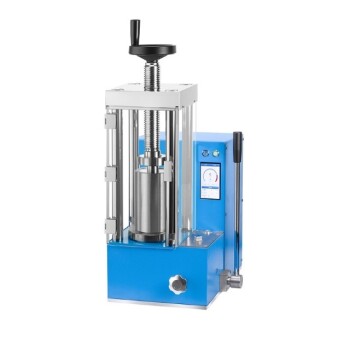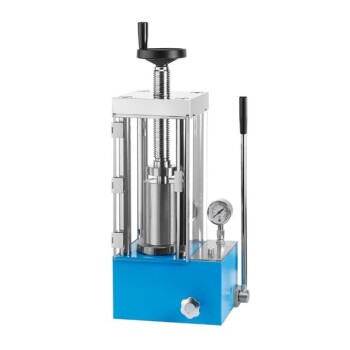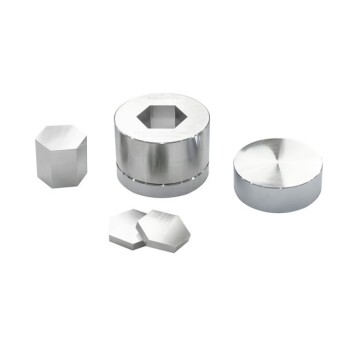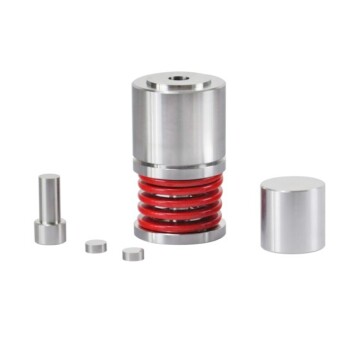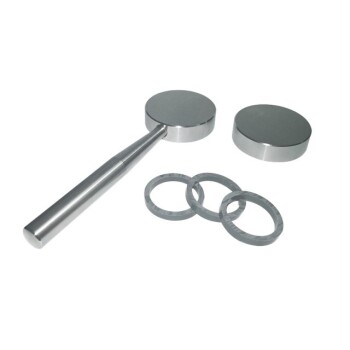At its core, Cold Isostatic Pressing (CIP) is a foundational technology for industries where component failure is not an option. It is essential for aerospace, medical, defense, energy, and electronics manufacturing, enabling the creation of high-integrity parts from powdered materials. The technology ensures that components possess uniform density and strength, which is critical for performance in extreme environments.
The true value of Cold Isostatic Pressing is not simply the industries it serves, but the fundamental problem it solves: eliminating the hidden voids and stress points that plague traditionally manufactured parts. CIP builds reliability and uniformity into a component's very structure before it is even finalized.
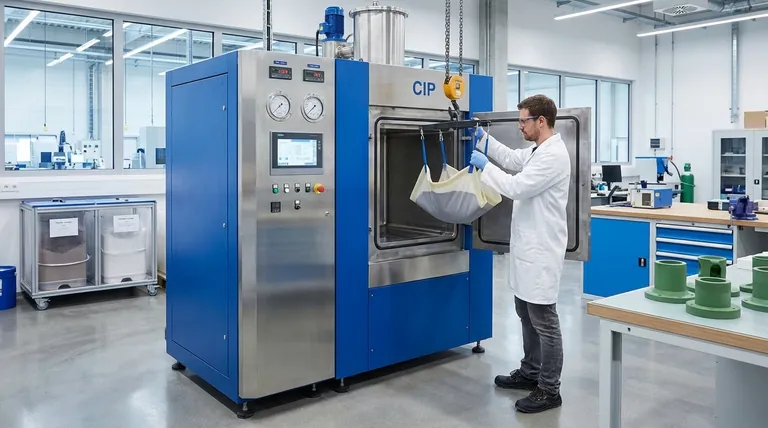
Why High-Stakes Industries Rely on CIP
The widespread adoption of CIP in critical sectors is not accidental. It stems from the unique physical properties it imparts to materials during the initial forming stage.
The Principle of Uniform Pressure
Cold Isostatic Pressing involves placing a powdered material into a flexible mold and submerging it in a high-pressure liquid chamber. Pressure is then applied equally from all directions.
This is fundamentally different from traditional uniaxial pressing, which only applies force from one or two directions. The result of this isostatic pressure is a consolidated "green" part with exceptional consistency.
Achieving Uniform Density
Because pressure is applied uniformly, the powdered material compacts with virtually no density variation throughout the part.
This eliminates internal voids, cracks, and weak spots that can lead to catastrophic failure under stress. For a turbine blade or a medical implant, this uniformity is a non-negotiable requirement.
Forming Complex Geometries
The use of a flexible mold allows CIP to produce complex and intricate shapes that would be difficult or impossible to create with rigid dies.
This capability reduces the need for extensive post-machining, saving time and material, especially when working with expensive superalloys or technical ceramics.
A Closer Look at Key Applications
Understanding the specific use cases within each industry clarifies why CIP is an indispensable tool for modern manufacturing.
Aerospace and Defense
In aerospace, engine components like turbine blades and structural parts made from superalloys must withstand extreme temperatures and mechanical stress.
CIP is used to form these components, ensuring they have the green strength and uniform structure needed to survive the subsequent sintering and finishing processes without developing flaws.
Medical and Pharmaceutical
The medical field relies on CIP for manufacturing high-purity ceramic or metallic implants, such as hip and dental replacements. The uniform density ensures biocompatibility and long-term durability inside the human body.
In pharmaceuticals, CIP is used to create uniformly dense tablets, ensuring consistent and predictable dosage delivery.
Energy and Nuclear
For the energy sector, particularly nuclear applications, CIP is used to form components like nuclear fuel pellets.
The extreme reliability and predictable performance derived from uniform density are paramount for safety and efficiency in a reactor environment.
Electronics and Industrial
Many advanced electronic components, such as ferrites and other magnetic materials, require precise and uniform properties to function correctly.
CIP provides the initial consolidation step to guarantee this consistency before the parts are fired in a kiln.
Understanding the Trade-offs
While powerful, Cold Isostatic Pressing is a specialized tool, not a universal solution. Understanding its limitations is key to using it effectively.
It's a Powder Metallurgy Process
CIP is specifically designed to compact powders. It is not used on solid blocks of metal or for testing the strength of existing materials like a hydraulic press.
Its primary function is to create a consolidated "green" part from a powder, which almost always requires a subsequent high-temperature heating process called sintering to achieve its final strength and properties.
Distinguishing from Hot Isostatic Pressing (HIP)
It's crucial not to confuse Cold Isostatic Pressing (CIP) with Hot Isostatic Pressing (HIP).
CIP is performed at or near room temperature to provide uniform green strength before sintering. HIP is performed at extremely high temperatures and pressures to eliminate any remaining porosity after an initial sintering or casting process, achieving nearly 100% density.
Making the Right Choice for Your Goal
To determine if CIP is the correct technology, you must first define your material and performance objectives.
- If your primary focus is creating a uniform, pre-sintered component from a powder (ceramic, metal, or composite): CIP is the ideal technology to ensure consistent green strength and minimize flaws.
- If your primary focus is achieving maximum final density in a cast or sintered part: You are likely looking for Hot Isostatic Pressing (HIP) as a final densification step, which may or may not be preceded by CIP.
- If your primary focus is high-volume production of simple shapes from powder: Traditional uniaxial or die pressing may be a more economical and faster alternative, assuming slight density variations are acceptable.
Ultimately, selecting the right pressing technology requires a clear understanding of your material's journey from powder to a mission-critical final part.
Summary Table:
| Industry | Key Applications | Benefits of CIP |
|---|---|---|
| Aerospace and Defense | Turbine blades, structural parts | Uniform density, high green strength, withstands extreme stress |
| Medical and Pharmaceutical | Implants (e.g., hip, dental), tablets | Biocompatibility, durability, consistent dosage |
| Energy and Nuclear | Nuclear fuel pellets | Reliability, safety, predictable performance |
| Electronics and Industrial | Ferrites, magnetic materials | Precise properties, uniformity before firing |
Need reliable lab press solutions for your powdered materials? KINTEK specializes in lab press machines, including automatic lab presses, isostatic presses, and heated lab presses, designed to meet the demanding needs of laboratories in industries like aerospace, medical, and energy. Our equipment ensures uniform compaction and high-integrity parts, helping you achieve superior performance and efficiency. Contact us today to discuss how our presses can enhance your manufacturing processes!
Visual Guide
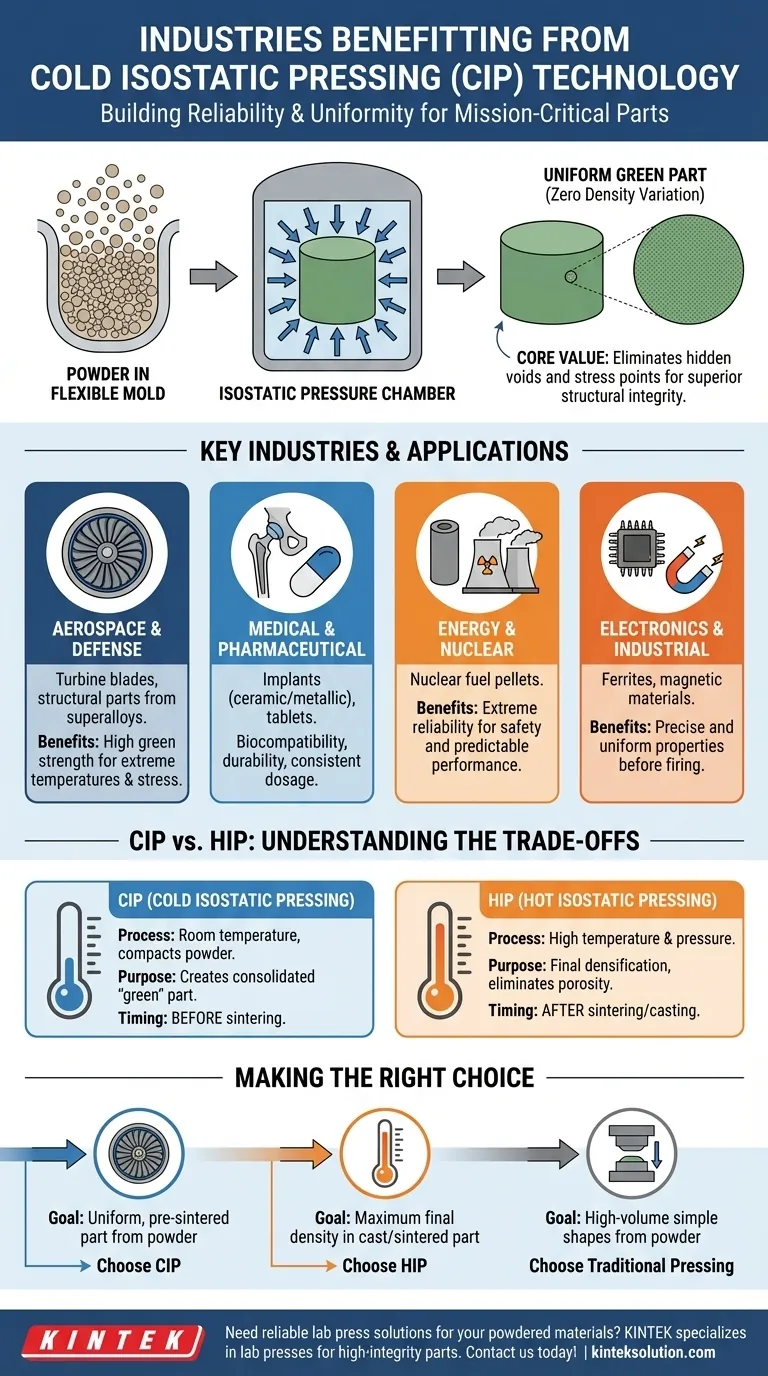
Related Products
- Electric Lab Cold Isostatic Press CIP Machine
- Electric Split Lab Cold Isostatic Pressing CIP Machine
- Automatic Lab Cold Isostatic Pressing CIP Machine
- Manual Cold Isostatic Pressing CIP Machine Pellet Press
- Lab Polygon Press Mold
People Also Ask
- Why is a Cold Isostatic Press (CIP) required for the formation of Nb-Ti alloy green compacts? Ensure Density Uniformity
- What are the advantages of uniform density and structural integrity in CIP? Achieve Superior Performance and Reliability
- What are the characteristics of the isostatic pressing process? Achieve Uniform Density for Complex Parts
- What are the two main techniques used in cold isostatic pressing? Wet-Bag vs. Dry-Bag Methods Explained
- What is the specific function of a Cold Isostatic Press (CIP)? Enhance Carbon Inoculation in Mg-Al Alloys
